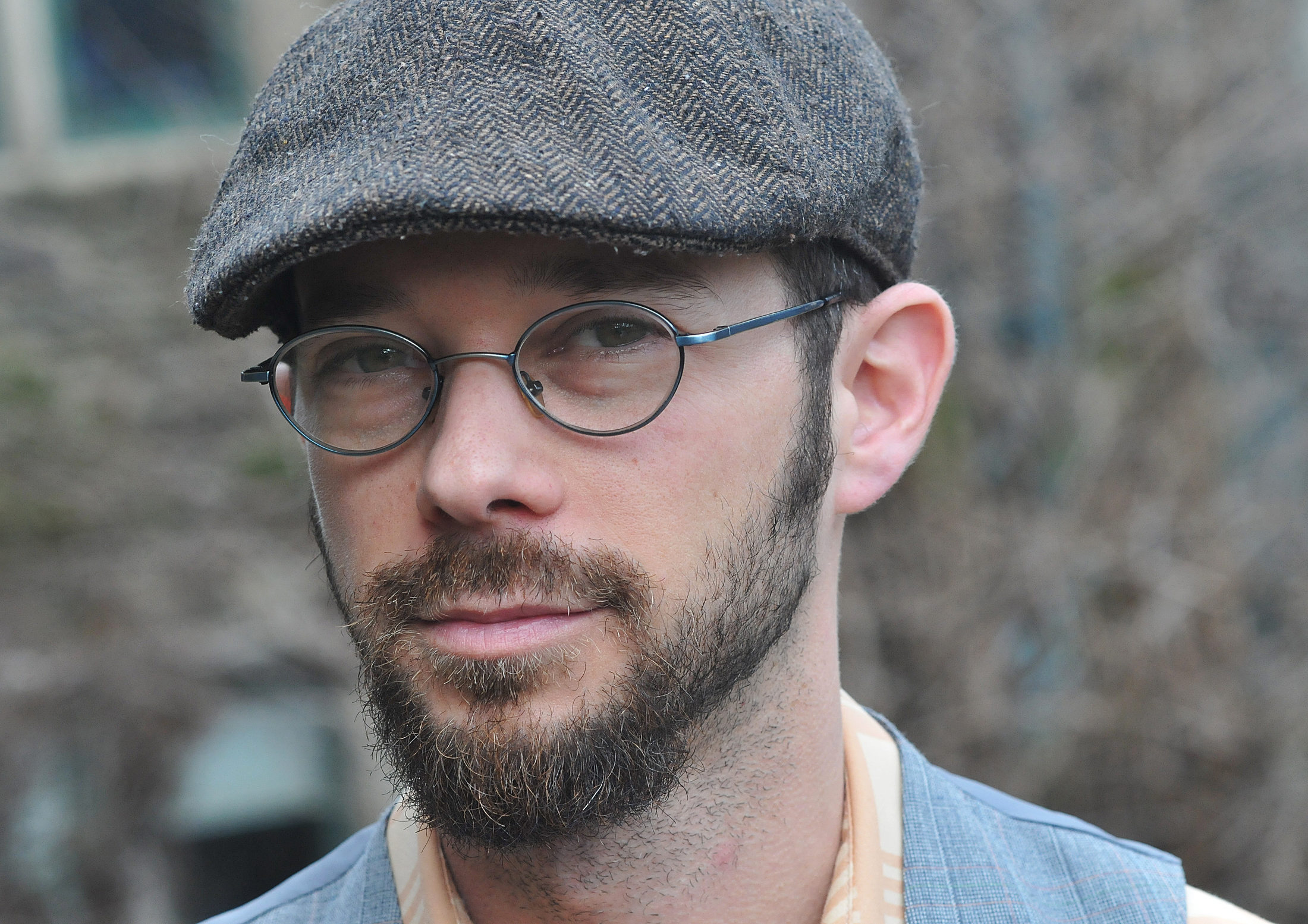
David Harris-Gershon is a Jewish educator, author, speaker, and regular blogger for Tikkun Magazine. He was recently asked by the Israel Committee of Santa Barbara to be a keynote speaker at its annual event, which was to be housed in the Santa Barbara Hillel building. He was going to speak about his book, What Do You Buy the Children of the Terrorist Who Tried to Kill Your Wife?, which chronicles his attempts at reconciling with a Palestinian family.
When a staff member of the Santa Barbara Hillel read a statement of his arguing that boycotts and sanctions were a legitimate means of nonviolent protest against Israel, he was asked to release a political statement clarifying his position on BDS or else he “would not be welcome within our walls.”
New Voices editor Derek M. Kwait interviewed him via email about the experience:
- Have you gotten any reactions from students—at UCSB or elsewhere—about what you had to go through to speak at a Hillel?
I haven’t had any direct contact with students at UCSB, though I have had both former students of mine and others contact me to express their dismay at SB Hillel’s decision to a) require a favorable political statement before allowing me to speak about reconciliation, and then b) deciding in the end not to allow me into the building to speak, despite having made their required statement.
- Do you know of anyone else who has had to issue a statement clarifying their political views before speaking at a Hillel?
No, I’ve never heard of anything like this transpiring. Sure, there have been people banned by Hillel, but this is the first time I’ve witnessed a Hillel require a favorable political statement before allowing someone into the building to speak. (And in the end, despite the statement I made, it was decided I should not be allowed to speak.)
There are many perplexing and troubling aspects about what has occurred. When one considers that I am a Jewish Studies teacher (I teach Chumash to elementary- and middle-school students) as well as an author who has spoken about my book in Jewish community centers and synagogues across the country, it’s certainly perplexing. Even more so given that I was scheduled to speak about my book, which focuses on the topic of reconciliation and understanding, and not on any political issues about which Hillel was concerned.
- The most salient student argument I have heard against having Open Hillels is that Zionist Jewish students want a place they can go to get away from the onslaught of anti-Israel activity, a place to feel safe among like-minded peers. What is your response to this?
I don’t think anyone would argue that Hillel students don’t have the right to a space free of anti-Israel activity. However, the problem is that the notion of what is “anti-Israel” has been stretched to the point that people, such as myself and Peter Beinart – progressive Zionists who believe in Israel as a Jewish, Democratic state – are being banned for our political critiques and positions.
We as a community will never solve our most pressing problems if we are afraid to debate and discuss them.
- As a Jewish educator, can you think of any parallel situation in Jewish history when an entire topic was banned from discussion?
To me, one of the most interesting situations in Jewish history was when the books of Apocrypha (like the Book of Maccabees) were essentially forbidden from study, and were ultimately not included in the Hebrew bible — Tanach.
- Why do you feel this is such a raw nerve among American Jews, and, as the great Gershon Gorenberg quote you bring suggests, is not among Israelis?
The issue of Israel and economic sanctions is a contentious issue both here and in Israel. However, as Gershom Gorenberg notes, the idea that the issue cannot be discussed and debated is an absolutely absurd one to most Israelis.
I’m as perplexed as you are as to why the American Jewish community at large is paralyzed by fear such that we essentially ban topics from discussion, as Hillel International has done with its Israel guidelines.
- Do you feel it’s possible in the current political climate to advocate for the rights of Palestinians without some considering you anti-Israel? How can we as college students help move our communities beyond such false dichotomies?
There are plenty of people in the Jewish community who understand that there is nothing inherently anti-Israel about advocating for the rights of both Palestinians and Israelis. It’s those who view the conflict as a zero-sum game who feel this way, those who think “you’re either for us, or against us.”
The most effective and meaningful thing that communities can do to move beyond such false dichotomies is to actually meet and engage with the other side. Dialogue between Jews and Muslims, between Jewish Israelis and Palestinians, has been shown in studies to have incredible power in moving people closer to compromise, and away from zero-sum-game mentalities.
- I noticed the “debate” you had with Jon in the comments. How can progressives engage in conversation those who are so suspicious of them?
Jon is a character who, in the past, has called me an “anti-Semite” and “kapo” for having political views he doesn’t share. Sometimes, no matter how much one values dialogue and debate, it’s not possible to have constructive or rational discussions with particular people. In such situations, it’s important to simply let go and move on, rather than feed the negativity.
- What would your ideal Jewish on-campus institution look like?
Swarthmore’s Hillel.
